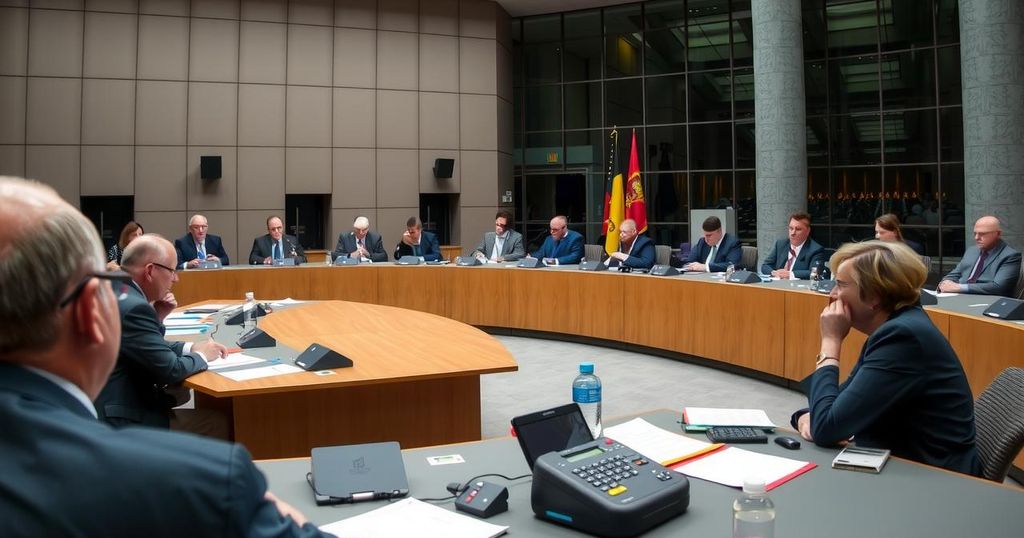German Parliament Approves Early Elections Amid Political Turmoil

The German Parliament has facilitated early elections, scheduled for February 23, following Chancellor Olaf Scholz’s decision amid political turmoil. The ruling coalition’s collapse over economic disagreements comes at a sensitive time for the economy. Public sentiment shows shifting loyalties, with major parties vying for support against a backdrop of essential economic and governance challenges.
The German Parliament has approved a motion enabling early national elections, following a confidence vote called by Chancellor Olaf Scholz after the dismissal of Finance Minister Christian Lindner. This political maneuver sets a new election date of February 23, seven months earlier than originally scheduled. The ruling coalition has faced severe internal tensions, resulting in the collapse of the alliance among the Social Democrats, Greens, and Free Democrats over borrowing policies related to economic support and international obligations, particularly concerning Ukraine.
Political instability adds to the challenges facing Europe’s largest economy, which has not seen significant growth in recent years. The possible return of Donald Trump to the White House raises concerns about future US support for Ukraine and potential tariffs affecting German exports. The forthcoming elections will revolve around critical issues, including economic recovery, government spending on infrastructure and defense, and managing irregular migration.
The confidence vote results showed overwhelming support from 394 lawmakers in the Bundestag for the motion, allowing Scholz to seek parliamentary dissolution from President Frank-Walter Steinmeier to finalize the election date. Scholz emphasized the need for substantial investment in Germany, stating, “It’s high time to invest forcefully into our country.”
Public sentiment is already evident in recent polls, where the conservative CDU/CSU alliance leads with 31% support, followed by the far-right Alternative for Germany at 19.8%, and the SPD at 17%. The political landscape indicates that the CDU may have to collaborate with the SPD or the Greens to form a governing coalition, given their refusal to engage with the AfD.
Germany’s current political climate has been marked by instability, primarily due to internal disputes within the governing coalition. The Social Democratic Party’s early election strategy reflects significant dissatisfaction with the administration, particularly following the controversial firing of Finance Minister Lindner. Moreover, economic stagnation and external pressures exacerbated by international developments have fueled public discontent. The impending elections present a pivotal opportunity for parties to address economic issues and governance strategies to rejuvenate the country’s economic landscape.
The passage of the early election motion highlights the urgent need for leadership change in Germany amid ongoing political strife and economic challenges. Chancellor Scholz’s strategic move reflects an attempt to restore confidence in government, while the rise of opposition parties signals a rapidly changing political dynamic. As campaigning begins, key issues such as infrastructure investment, defense spending, and economic recovery will dominate the election discourse, directly impacting Germany’s future trajectory.
Original Source: www.ndtvprofit.com








